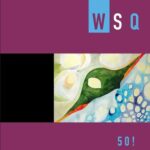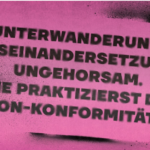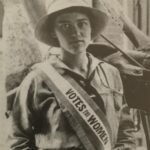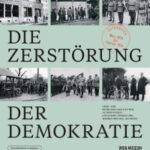Doktorandinnen des Maison de la Recherche der Univ. Toulouse II (Web)
Zeit: 14.-15.03.2024
Ort: Toulouse
Einreichfrist: 15.12.2022
Sophie Scholl „verkörpert, manchmal als einzige, den deutschen Widerstand, oft auf Kosten einer Verzerrung der Fakten und zum Nachteil anderer Frauen […]” (Camarade, 2021). Während zahlreiche Erinnerungsrituale generell dazu beigetragen haben, das Engagement von Widerstandskämpfer:innen im kollektiven Gedächtnis zu verankern, scheinen manche engagierte Persönlichkeiten dabei ein günstigeres Los gezogen zu haben als andere. Die revolutionäre, österreichisch-jüdische Künstlerin Agathe Löwe zählt zum Beispiel zu den „Verschütteten der Geschichte” (Andreas Pavlic, Eva Schörkhuber, 2021), während die deutsche Expressionistin Käthe Kollwitz, die in ihren Lithographien den Krieg und die soziale Not anprangert, in Deutschland einstimmig als engagierte Künstlerin anerkannt wird, in Frankreich dagegen eher unbekannt ist.
Diese Beispiele für verschiedene Formen politischen, sozialen und künstlerischen Engagements bringen dieses zum Vorschein und hinterfragen zugleich jene Prozesse, die bei der Entstehung und Vermittlung von Wissen von Engagement am Werk sind und zu Phänomenen der Über- oder Unterbetonung oder gar des Verschweigens führen. Daraus entspringt die Frage nach dem Erbe und der langfristigen Vermittlung von Formen des Engagements. Durch welche Prozesse entsteht die Erinnerung an ein Engagement oder an eine Person und wie werden manche dieser engagierten Persönlichkeiten zu Ikonen, während andere dem Vergessen anheimfallen? Welche Leitbilder und welche Traditionen des Engagements erben wir? Wie erfolgt deren Rezeption durch unterschiedliche Generationen und in unterschiedlichen Ländern? Über welche Kanäle wird dieses Engagement weitergegeben, sei es die Art und Weise der Verbreitung einer Botschaft oder die entsprechenden von unterschiedlichen Akteur:innen benutzten medialen Strategien, um Spuren zu hinterlassen? Das Engagement von Sophie Scholl, von Agathe Löwe oder Käthe Kollwitz, das unterschiedliche Ebenen eines zur selben Zeit stattfindenden Handelns widerspiegelt, zeigt jeweils sehr verschiedene und unterschiedliche Nutzungen von Medien (Flugblatt, Karikatur, Lithographie). Diese Beispiele fordern folglich besonders dazu auf, sich den „Mitteln der Vermittlung“ zur Zeit des Engagements zu zuwenden, das heißt den Medien, den Informationsträgern und den Prozessen des Engagements, seien sie dazu da gewesen, eine These zu vermitteln, einen Kampf auszutragen oder aus Protest. Weiterlesen und Quelle … (Web)
 2024 AtGender Conference (Web)
2024 AtGender Conference (Web)
 Women’s Studies Quarterly (WSQ); Kendra Sullivan and Ángeles Donoso Macaya (New York)
Women’s Studies Quarterly (WSQ); Kendra Sullivan and Ángeles Donoso Macaya (New York)  Fachbereichsbibliothek Zeitgeschichte
Fachbereichsbibliothek Zeitgeschichte  WienWoche
WienWoche  Women and Social Movements in the United States, 1600-2000; Thomas Dublin and Kathryn Kish Sklar
Women and Social Movements in the United States, 1600-2000; Thomas Dublin and Kathryn Kish Sklar  Wienbibliothek im Rathaus in Koop. mit dem Wien Museum: Ausstellung „Österreich, März 1933 bis Februar 1934. Die Zerstörung der Demokratie“
Wienbibliothek im Rathaus in Koop. mit dem Wien Museum: Ausstellung „Österreich, März 1933 bis Februar 1934. Die Zerstörung der Demokratie“  GENDER. Zeitschrift für Geschlecht, Kultur und Gesellschaft 3/23; Anne Schlüter und Uta C. Schmidt
GENDER. Zeitschrift für Geschlecht, Kultur und Gesellschaft 3/23; Anne Schlüter und Uta C. Schmidt